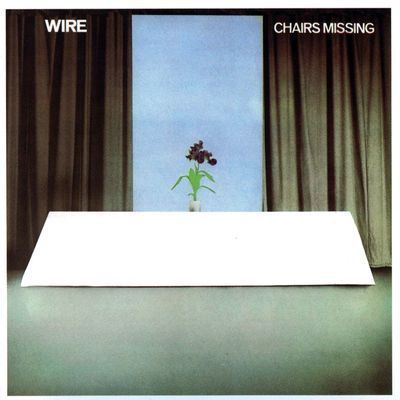Alternative jukebox
By ADRIAN TAHOURDIN
Here’s an unlikely publication. I say unlikely because the book is published in conjunction with BBC Radio 6 Music, the station that four years ago was earmarked for closure on account of its modest listening figures (690,000, which doesn’t seem too bad to me). There was a public outcry – false economies etc – and the station was saved.
BBC Radio 6 Music’s Alternative Jukebox (304pp. £20), put together by the station’s presenters and editors, has the air of a celebration of this last-minute stay of execution. Dipping into this handsomely illustrated volume, subtitled “500 extraordinary tracks that tell the story of alternative music”, feels a bit like a trip down memory lane, to the 70s and early 80s (and just another manifestation, perhaps, of my inexorable regression to a second adolescence).
The 60s draw to a close with the likes of “All Along the Watchtower” by the Jimi Hendrix Experience (“this radical cover of a Bob Dylan song”) and the Rolling Stones’s “Gimme Shelter” (“arguably . . . both song and album are as much a requiem for the Rolling Stones as an era-defining creative force rather than a hugely commercially successful band”). By the early 70s we have Marvin Gaye’s “What’s Going On” and The O’Jays’ “Back Stabbers” (“As the 1960s rolled into the the 1970s, against a background of the Vietnam War and Watergate, it seemed the underlying emotion in protest soul music was paranoia”).
In the mid-70s we come across David Bowie’s baffling but wonderful “Station to Station” (a thesis on its lyrics awaits), the Stranglers’ “(Get A) Grip (On Yourself)”, the Clash’s “Complete Control”, Talking Heads’ “Psycho Killer”, The Jam’s “In the City”, Magazine’s “Shot by Both Sides”, Siouxsie and the Banshees’ “Hong Kong Garden” (“a song written about a Chinese takeaway in suburban Kent”, in Nemone’s words).
No celebration of “alternative music” would be complete without the Undertones’ “Teenage Kicks” – “four teenagers from Derry . . . . Never mind The Troubles, here’s what teenagers really worried about” – or The Cure’s “10.15 Saturday Night” (“I’m sitting in the kitchen sink”?). The brutal “California Über Alles” by the Dead Kennedys, meanwhile, did nothing for Governor Jerry Brown’s chances of re-election.
It’s particularly pleasing to see the utterly original Wire get a selection with their song “Outdoor Miner”, from their sublime album Chairs Missing; all of one minute and 45 seconds long, it's hailed for its “sunny, nutty and fresh-faced optimism”; a song so beautiful and bizarre that its lyrics are worth quoting in full:
No blind spots in the leopard's eyes
Can only help to jeopardize
The lives of lambs, the shepherd cries
An outdoor life for a silverfish
Eternal dust less ticklish
Than the clean room, a house guest's wish
He lies on his side, is he trying to hide?
In fact it's the earth, which he's known since birth
Face worker, a serpentine miner
A roof falls, an under liner
Of leaf structure, the egg timer . . .
A cause for celebration is that a station that was almost closed down can now boast listening figures of 2 million plus – impressive given that it’s digital only. I for one have started listening to it only in the past year or so, and now alternate between Radios 3, 4 and 6 (how horribly smug and middle-class that must sound). I could happily spend most of Sundays listening to 6 Music, from Cerys Matthews’s laid-back show in the morning, via Iggy Pop’s excellent and educative two hours of consistently surprising choices, to Tom Robinson’s listener-led programme from 6 to 8 in the evening. Oh, Tom Robinson and his Band are in the Jukebox too: 1978’s “Up Against the Wall”, less well known than their hit “2-4-6-8 Motorway”, and almost as good.
Peter Stothard's Blog
- Peter Stothard's profile
- 30 followers




